Rewind Review: Severance, "The You You Are" | Season 1, Episode 4
The show continues a methodical approach to its mystery, right up until it doesn't
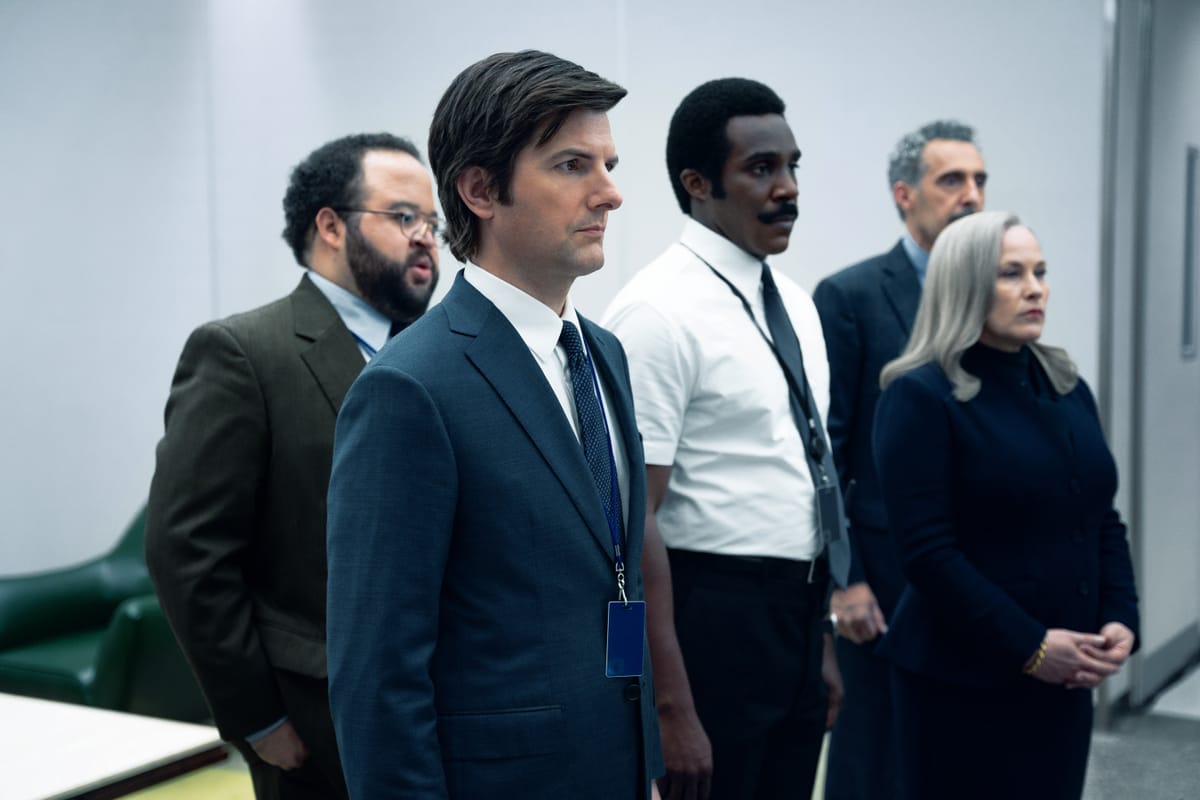
In the lead up to the second season premiere of Apple TV+’s Severance, I’m sending subscribers my reviews of the first season, which were the first I wrote for the newsletter.
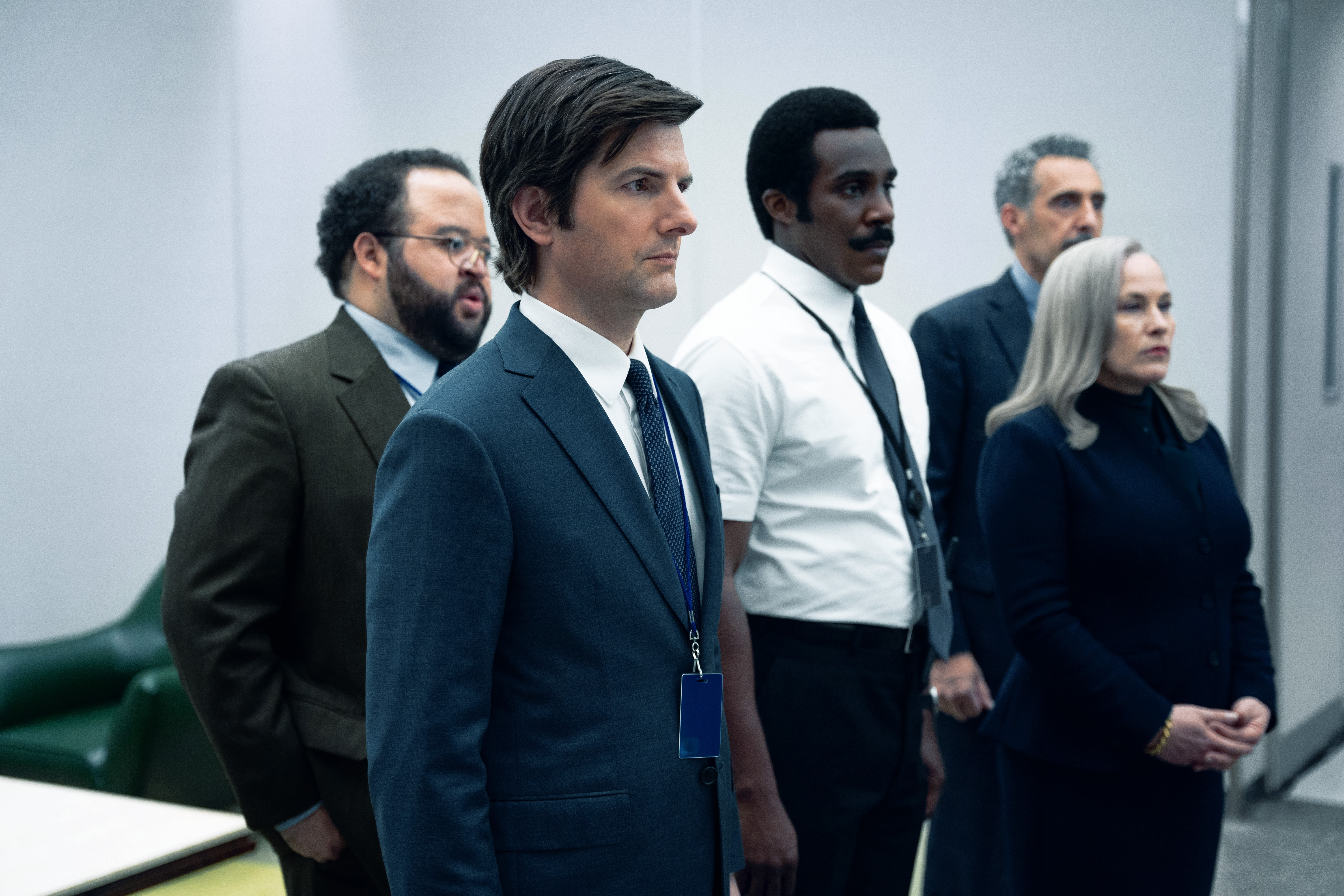
To join the conversation in the original reviews (you can find the comments at the link above), read them faster than the weekly emails, and make sure you receive my coverage of season two, become a paid subscriber today.
Peak TV means that not all critics who get screener access to shows necessarily have the time to watch them to completion before a show debuts if they’re not actively writing a review. Accordingly, it was only this week that my pal Kathryn VanArendonk worked her way through Severance and tweeted the following:
also Severance is more like LOST than any of the billions of LOST knockoffs of the last two decades
— Kathryn VanArendonk (@kvanaren) 3:07 AM ∙ Mar 1, 2022
Writing about a show week-to-week is a distinct experience, in that it is inherently shaped by this type of discourse. Because of Kathryn’s tweet, I had Lost on the brain when I watched “The You You Are,” in a way I wouldn’t have if I had watched the screener before this tweet. Last week, someone on Twitter was trying to decide whether to subscribe to this newsletter, and wanted to know if my reviews have talked at all about how Severance has sketched out the weird place of food in this story; accordingly, I couldn’t help but notice that the only catering at Petey’s funeral was wine, not food. It’s entirely possible these dynamics of the episode would have emerged naturally, but there’s no question my lens on this episode was altered by this.
It’s fitting though that Kathryn’s tweet came when it did, because “The You You Are” is certainly the episode that draws out the Lost comparison most strongly. Viewing the Severed Floor as an equivalent to The Island—there’s a deeper reading that digs into how it’s more like the Flash Sideways but let’s focus here for the time being—becomes natural when the Macrodata Refinement department becomes aware of Petey’s map. It’s actually not the only map they receive: Burt from Optics and Design shows up with the new handbook totes and an open invitation for Irving to visit him by following a different map entirely. It’s not unlike when John Locke saw the blast door map in the hatch for the first time: suddenly, the abstract idea of the rest of the Severed Floor is real, and open to them, and it sparks something in all of them.
Mark is the most resistant to it, both inside and outside: much as he tucks Petey’s cell phone away in a box, he shreds the map as Helly’s insistence on analyzing it puts too much pressure on him. But Outside Mark still goes to Petey’s funeral, and Inside Mark still takes his brother-in-law’s self-help book—found in the conference room where Milchick left it—into the bathroom to read instead of immediately turning it in. Mark is the person in the best position to blow this mystery wide open, and we’re dependent on him to get the narrative resolution we crave. What we see in “The You You Are” is the need for answers outweighing his need for ignorance, in both spaces: it’s a fraught journey, with Petey’s funeral awakening his grief for his wife and bleeding into his Wellness session that Cobel schedules for him, but there’s now a clear sense that he has to be on the journey even if he doesn’t fully understand why.
Irving’s story is similarly pitched, as the show leans into the spark he felt with Burt as the two share an intimate moment—they touch hands—during the tour of Optics and Design. Irving has more successfully filled the void left by the severance process than any of the others, insofar as he drank the kool-aid and in no way questions the mythos that surrounds him. But whatever attraction he’s feeling to Burt isn’t part of that: whether queerness as a concept exists in this severed world is unclear, and it’s equally unclear whether the “Outside” Irving is or isn’t. Dylan’s whole run on MILFs confirms that “Innies” are certainly capable of expressing and understanding sexuality, but is this particular bit of repression the cause of Irving’s dozing?
Weirdly, while Mark is certainly the character best situated to push us closer to answers to some core questions about Lumon and the severance process, it’s Irving of all people who ends up opening the door that shows us the actual inner workings of the severed floor. But the factory floor he uncovers raises more questions than answers. What, exactly, is the purpose of the facade of the two-person optics and design department? Is Burt breaking protocol by bringing Irving into the space in an effort to explore the connection illicitly, or is it in some way part of a larger plan? The thing is, Irving has no desire to even ask these questions! He’s the character most accepting of the reality of Lumon’s severed floor, except something is causing the dozing, and whatever connection he’s made with Burt is destabilizing his world whether he wants it to or not.
Mark and Irving’s stories follow a fairly typical slow burn mystery pace, matched by Cobel inserting herself further into Mark’s narrative. She wasn’t expecting to see him at the funeral when she’s there to drill into Petey’s corpse to secure his microchip for diagnostics, but she’s still playing the long game with Mark as opposed to intervening directly. It’s unclear exactly why she is working so hard on the outside to track Mark’s mental state, but that great reveal of the candle pays off her earlier snooping and suggests she’s orchestrating his inside and outside lives for one reason or another. In this story as in Mark and Irving’s, we’re getting a steady stream of questions, and just enough answers to feel like we’re making progress.
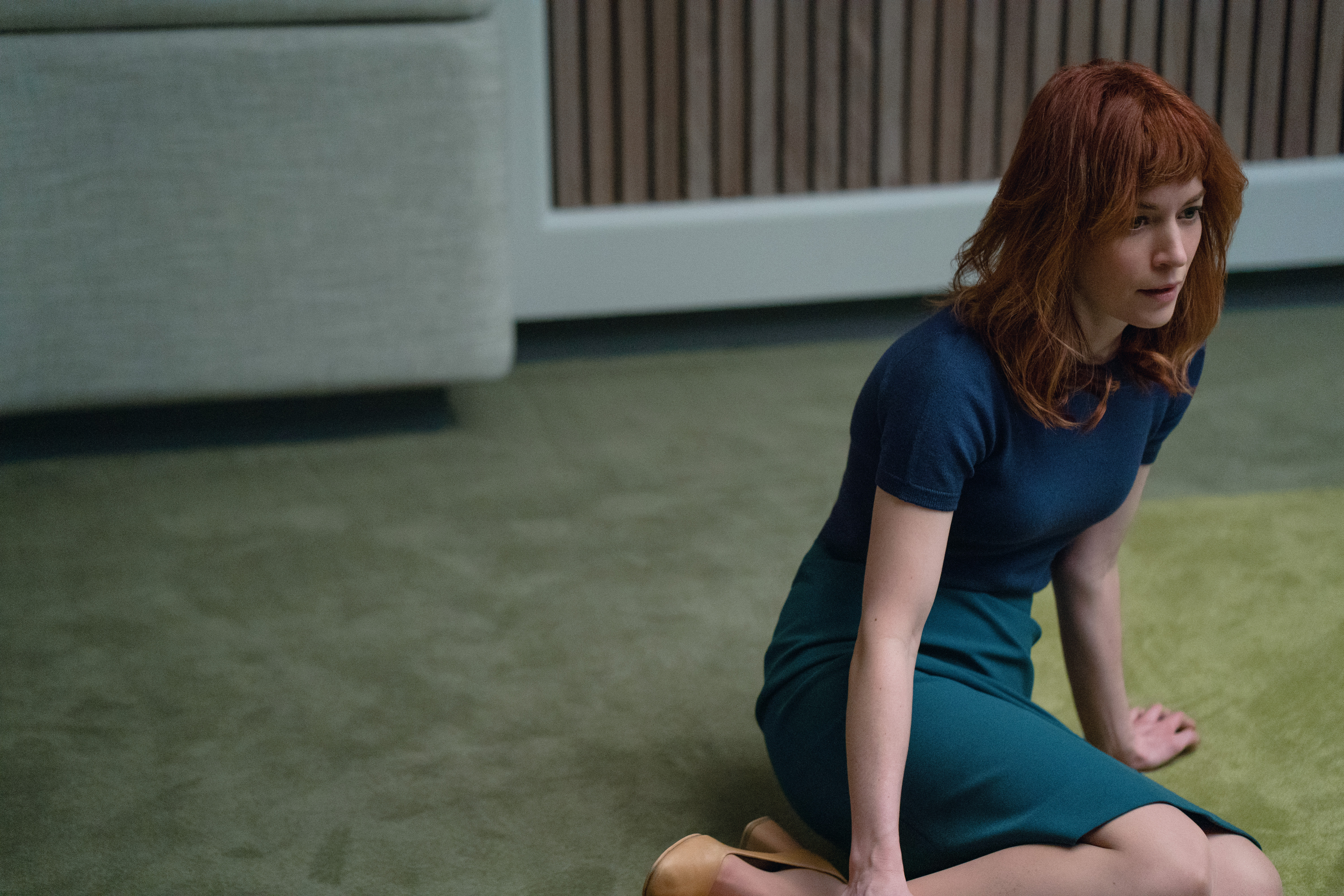
But then there’s Helly. For most of “The You You Are,” Helly is operating at the same pace as everything else. She doesn’t pass the test in the Break Room, so she’s sent home, only to wake up as though she never left, and head back in to finally pass after 1072 recitations of the apology. They greet her as though they’ve all been through this, like it’s just part of the process, and it seems like she’s ready to settle in. But as soon as the opportunity arises, she’s got a giant paper cutter in her hand, storming into Cobel’s office to demand the ability to record a resignation video. And for the second time in the episode—which is exactly as disorienting as the show intends—she wakes up exactly where she was, but this time with a threatening video from herself, warning her that nothing she does is ever going to convince her to resign. The message is clear: Helly wants to escape, but she can’t, a cycle that mirrors the slow burn of the other stories.
It’s a slow burn right until it isn’t, and then it really isn’t. The pace of the rest of the episode gives us every reason to believe that Helly waltzing out of the office with an extension cord is just going to be another failed attempt. Even as we see her grab the trash can, I still have no reason to believe she’s actually going to do it. And so when the episode has the gall to have Mark tell Helly that it ”seems like you’re getting a hang of stuff here” right before she hangs herself from the top of the elevator, I laughed darkly, because it was so shocking to see her story accelerate to an entirely different pace than the ones around it. We don’t know if she’s going to die, or whether she might be “rescued”—I use that word loosely—by someone, but the fact she went through with it is a next level escalation of where this story is and where it’s headed.
In this way, then, it’s sort of not like Lost at all: while it certainly had its share of twists and turns, they were almost always slow to develop, because the show was working on a broadcast schedule and treated its mystery accordingly. Severance, meanwhile, shows in “The You You Know” that it is untethered by those logics, able to turn on a dime whenever it pleases. I thought I had a clear view of what this story was and the way it wanted to tell it, but what we see here shifts that, disrupting the clarity in all the right ways. And while that’s certainly a general feeling that I had with Lost’s storytelling, it takes on a different cadence when there’s only nine episodes in a season, and when there’s not an adherence to network television storytelling patterns built into it. As such, I still don’t know if the next episode could resolve nothing or everything, an uncertainty that only furthers my investment in the characters and their journeys.
Stray observations
- Okay, but how are they not being surveilled more consistently? We know there are plenty of cameras, so why isn’t there a security force beyond one dude? Is it that they think there doesn’t need to be, because they’re severed, and shouldn’t object? Is this a new problem that they just weren’t prepared for? I’m deeply perplexed by the fact Helly is able to get to that elevator, or that they’d leave something as dangerous as the paper cutter lying around if this was even a remote possibility.
- “I could not, with a razor at my throat, be less interested in being your family”—I recently heard someone explain that they in no way socialize with their co-workers because they “pick their friends,” and that echoed in my brain as Helly laid into Mark for regurgitating corporate speak that’s meant to make you organize your life around your job (which Mark reads about a bit in Ricken’s book).
- This marks the first directorial shift in the series, with Aoife McArdle taking over from Ben Stiller. The overall look of the show remains fairly consistent, but I did particularly like the way the lateral camera moves sold the maze-like space of the severed floor as Burt explored more of it.
- The map’s suggestion that there is some kind of residential space on the severed floor has a lot of implications, and might explain part of why Mark’s housing development never filled up.
- “I am a person. You are not. I make the decisions. You do not”—the plainness with which this is spoken is of course wild, but again: how normal is this? Is pitting the inside and outside selves against one another a common tactic? I’d love to read more of what the manual has to say on this.
- Of course Ricken wrote an acrostic poem.
- It’s a privilege to have screeners, but they do create some cognitive dissonance when you think you recognize someone, but you check their IMDB to be safe, but it isn’t listed yet because it hasn’t aired yet, and so you have to wait for the credits to confirm that was indeed fellow Acadia University alum Joanne Kelly as Petey’s ex-wife.
- And yes, the fact I have screeners does mean that I have the ability to resolve this cliffhanger immediately, but I still waited to watch until I finished writing this. (Although, as I expected, the episode summary for the following episode does at least imply at a spoiler to this regard).
- Speaking of IMDB, highly recommend this review of the show that implies that because this is creator Dan Erickson’s first credit he is actually a fake person. (I’ve met fellow Substacker Anne Helen Petersen, who vouches for his existence, but the show certainly encourages us to question everything.)
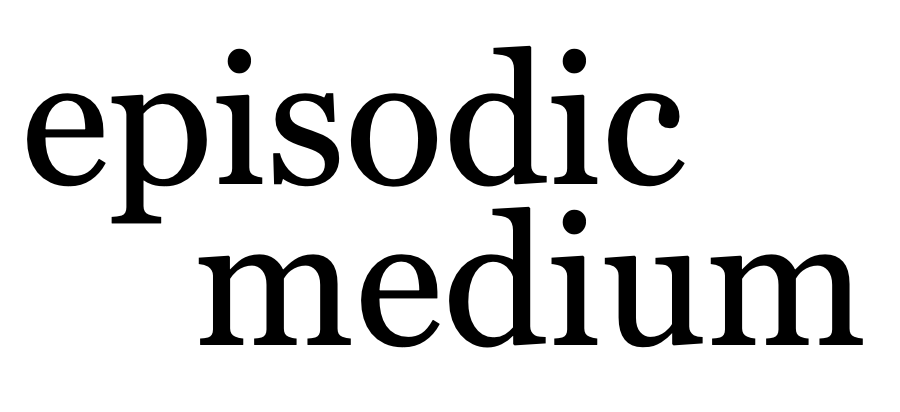

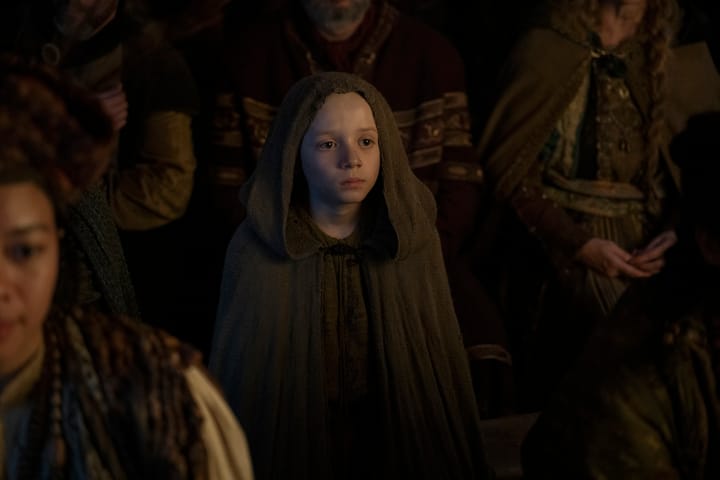

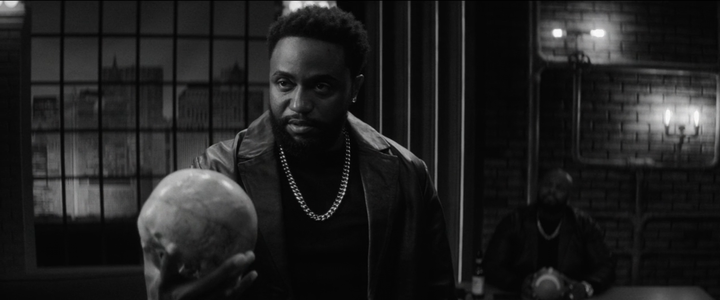
Comments ()